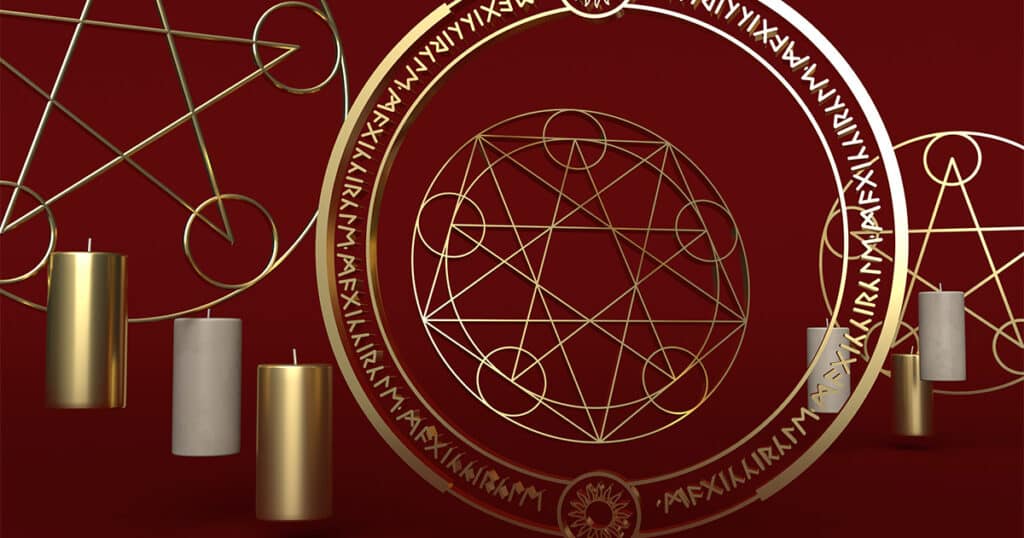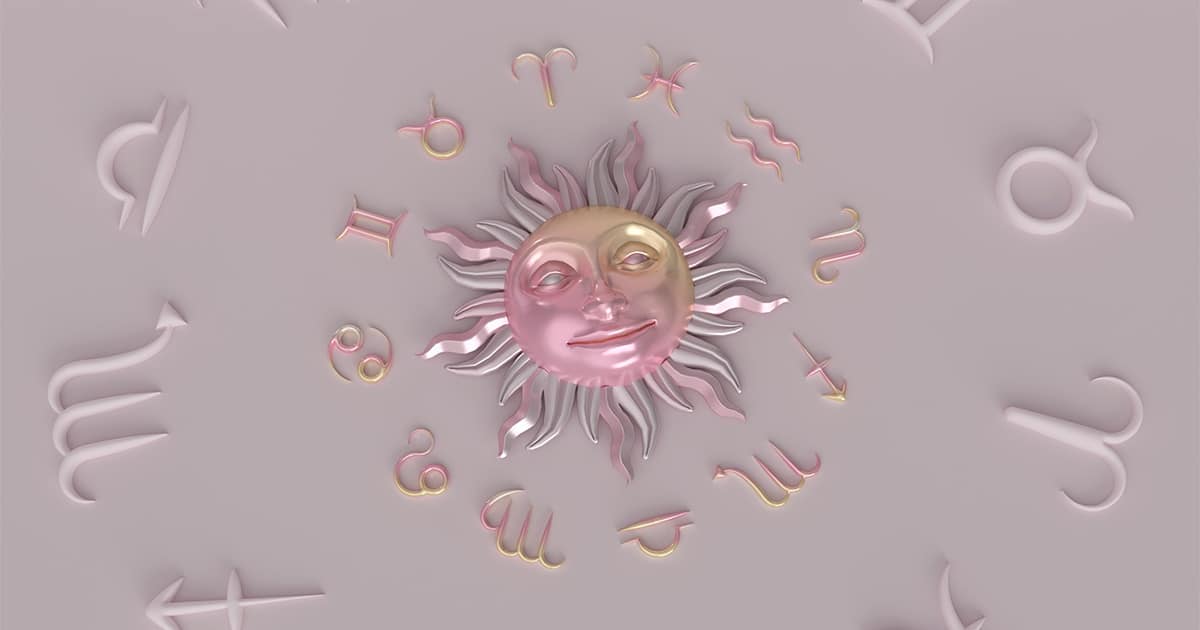Astrology has always been a topic of fascination for many, with its promises of insight into the future and the mysteries of the universe. However, for those who follow the teachings of Islam, the question arises – is astrology permissible or is it considered haram?
In this blog post, we will delve into the Islamic perspective on astrology, exploring its origins, its presence in the Quran and Hadith, and the interpretations of scholars. We will also examine why astrology might be considered haram and its impact on a Muslim’s faith.
To begin, let us understand the basics. Astrology is the belief that celestial bodies and their movements can influence human behavior and destiny. It has its roots in ancient civilizations and has been practiced in various forms across different cultures.
In the Quran, there are references to celestial bodies, such as the sun, moon, and stars, but their significance is not linked to astrology. Similarly, in the Hadith, the sayings and actions of the Prophet Muhammad (peace be upon him), there are mentions of celestial phenomena, but they do not endorse or promote astrology.
Islamic scholars have varied interpretations when it comes to astrology. Some argue that it contradicts the Islamic concept of monotheism (Tawheed), as it implies that celestial bodies have the power to influence human lives, which is solely within the control of Allah. Others believe that astrology is merely a form of entertainment and not to be taken seriously.
To determine whether astrology is haram, it is important to understand the concept of haram itself. Haram refers to actions or beliefs that are forbidden in Islam and are considered sinful. It is based on the principles and teachings of the Quran and Hadith.
Astrology might be considered haram due to its potential to lead to beliefs in superstitions and divination, which are strongly discouraged in Islam. Additionally, relying on astrology for decision-making can undermine trust in Allah’s plan and the concept of predestination.
The impact of believing in astrology on a Muslim’s faith is significant. It can affect their understanding of Tawheed, their reliance on Allah, and their ability to make informed decisions based on sound judgment.
In this blog post, we will explore these aspects in more detail, examining the arguments for and against astrology from an Islamic perspective. It is important to approach this topic with an open mind and a willingness to understand the teachings of Islam.
Join us as we navigate through the complexities of astrology and its place in Islam. Let us strive to seek knowledge and guidance in order to make informed choices that align with our faith.
Understanding the Basics: Astrology and Islam
Astrology is a belief system that suggests a correlation between the positions and movements of celestial bodies and events on Earth, including human behavior and destiny. It has been practiced for centuries and has roots in ancient civilizations such as the Babylonians, Egyptians, and Greeks.
In Islam, the understanding of astrology varies among scholars. Some argue that astrology is incompatible with the teachings of Islam, while others view it as a harmless form of entertainment. To gain a comprehensive understanding of astrology from an Islamic perspective, it is essential to explore its definition, origins, types, and its presence in various cultures.
Definition and Origins of Astrology
Astrology can be defined as the study of celestial bodies and their influence on human affairs. It involves analyzing the positions and movements of the sun, moon, planets, and stars to make predictions or gain insights into human behavior, relationships, and events. The origins of astrology can be traced back to ancient civilizations, where observations of the celestial bodies were used to develop systems of divination and prediction.
Types of Astrology
There are various types of astrology practiced worldwide, each with its own unique methods and belief systems. Some of the prominent types include:
- Western Astrology: This is the most widely known and practiced form of astrology in the Western world. It assigns zodiac signs to individuals based on their date of birth and analyzes the positions of celestial bodies at the time of their birth to provide insights into their personality traits and future.
- Vedic Astrology: Also known as Jyotish, Vedic astrology originated in ancient India and is deeply rooted in Hindu scriptures. It emphasizes the concept of karma and uses the positions of celestial bodies at the time of birth to predict future events and guide individuals in making life decisions.
- Chinese Astrology: Chinese astrology is based on the lunar calendar and assigns zodiac signs based on the year of birth. It incorporates elements of astrology, philosophy, and symbolism, and is widely practiced in East Asia.
Astrology in Various Cultures
Astrology has been embraced and practiced in different cultures throughout history. In some cultures, astrology plays a significant role in daily life, while in others, it is considered more of a curiosity or entertainment. For example:
- Ancient Egypt: Astrology was deeply intertwined with religion and played a crucial role in guiding the pharaohs and predicting the outcome of significant events.
- Ancient Greece: Greek philosophers, such as Plato and Aristotle, explored the concepts of celestial influences on human lives. Astrology was studied and practiced by renowned scholars like Ptolemy.
- Islamic Golden Age: During the Islamic Golden Age, astrology was studied and developed by Muslim scholars, who translated and synthesized ancient Greek and Persian astrological texts. However, their views on the compatibility of astrology with Islam varied.
Understanding the basics of astrology and its historical context is essential to approach the topic of astrology from an Islamic perspective. In the following sections, we will delve deeper into the references to astrology in the Quran and Hadith, as well as the interpretations of Islamic scholars regarding its permissibility in Islam.
What is Astrology?
Astrology is a belief system that suggests a correlation between the positions and movements of celestial bodies and events on Earth, including human behavior and destiny. It is based on the premise that the celestial bodies, such as the sun, moon, planets, and stars, have an impact on various aspects of human life.
Astrology involves studying the positions of these celestial bodies at specific times, such as the moment of a person’s birth, and interpreting their influence on an individual’s personality traits, relationships, and future events. This is often done through the use of zodiac signs, which are assigned based on the position of the sun at the time of birth.
The origins of astrology can be traced back to ancient civilizations, such as the Babylonians and Egyptians, who observed celestial phenomena and developed systems of divination and prediction. Over time, astrology evolved and gained popularity in different cultures, each with its own methods and interpretations.
It is important to note that astrology is distinct from astronomy, which is the scientific study of celestial objects and their physical properties. Astronomy is based on empirical evidence, observation, and mathematical calculations, whereas astrology relies on the belief in the influence of celestial bodies on human lives.
Astrology has been practiced in various forms across different cultures throughout history. In some cultures, astrology plays a significant role in daily life, guiding decisions related to marriage, career, and personal matters. In others, it is considered more of a curiosity or entertainment.
Understanding the concept of astrology is crucial when examining its compatibility with Islam. The Islamic perspective on astrology varies among scholars, with differing opinions on its permissibility and compatibility with Islamic beliefs.
In the upcoming sections, we will explore the references to astrology in the Quran and Hadith, examine the interpretations of Islamic scholars, and discuss the concept of haram in Islam to gain a comprehensive understanding of whether astrology is considered haram from an Islamic perspective.
Astrology in the Quran and Hadith
Astrology is a topic that is not extensively discussed in the Quran, the holy book of Islam. However, there are references to celestial bodies, such as the sun, moon, and stars, which hold significance in Islamic teachings. In this section, we will explore the mentions of astrology in the Quran and the Hadith, which are the sayings and actions of the Prophet Muhammad (peace be upon him).
References to Astrology in the Quran
While the Quran does not explicitly address astrology as a belief system, it mentions celestial bodies in various verses. These references highlight the creation and significance of the sun, moon, and stars, emphasizing their role in the universe and as signs of Allah’s power and greatness.
For example, in Surah Yunus (Chapter 10), Verse 5, it states: “It is He who made the sun a shining light and the moon a derived light and determined for it phases – that you may know the number of years and account [of time]. Allah has not created this except in truth.”
This verse highlights the purpose of the sun and the moon in measuring time and establishing calendars, rather than endorsing astrology as a means of predicting individual destinies or influencing human behavior.
References to Astrology in the Hadith
The Hadith literature contains the sayings of the Prophet Muhammad (peace be upon him) and provides further insights into the Islamic perspective on astrology. The Prophet’s statements regarding celestial phenomena focus primarily on their signs of Allah’s creation and the importance of recognizing His power.
One well-known Hadith regarding celestial bodies is narrated by Abdullah ibn Abbas, who reported that the Prophet Muhammad (peace be upon him) said: “Verily, Allah has created the stars for three purposes: as an adornment of the heavens, as missiles against the devils, and as signs for navigation. Whoever interprets them as something else has spoken falsely.”
This Hadith indicates that the purpose of celestial bodies, such as stars, is not related to astrology or predicting human destinies. Instead, they serve as adornments in the sky, protect against evil forces, and provide guidance for navigation.
Scholars’ Interpretations
Islamic scholars have interpreted the references to celestial bodies in the Quran and Hadith in various ways. Some scholars argue that these references do not endorse or support astrology as a valid belief system. They emphasize that the purpose of these celestial bodies is to serve as signs of Allah’s creation and His power, rather than having an influence over human destiny.
Other scholars take a more nuanced approach, acknowledging the existence of astrology but cautioning against its practice. They argue that astrology may lead to superstitions and divert people from relying solely on Allah’s guidance and decrees.
In conclusion, while the Quran and Hadith mention celestial bodies, they do not explicitly endorse or promote astrology as a means of predicting the future or influencing human lives. The focus is on recognizing Allah’s power and creation. The interpretations of Islamic scholars may vary, but it is essential to approach astrology in light of the core teachings of Islam and the principles of Tawheed (Islamic Monotheism).
Astrology and the Concept of Haram in Islam
Astrology and its permissibility in Islam are often discussed in the context of the concept of haram, which refers to actions or beliefs that are forbidden according to Islamic teachings. In this section, we will explore the reasons why astrology might be considered haram and analyze different perspectives from Islamic scholars.
Definition of Haram
Before delving into the topic, it is important to understand the concept of haram in Islam. Haram refers to actions or beliefs that are explicitly prohibited by the Quran or Hadith. Engaging in haram activities is considered sinful and can lead to spiritual and moral harm.
Islamic scholars derive the concept of haram through the principles and teachings of Islam, which prioritize obedience to Allah and adherence to His guidance in all aspects of life. The determination of what is haram is based on the clear directives provided in religious texts and the interpretations of scholars.
Why Astrology Might be Considered Haram
Astrology may be considered haram for several reasons, as argued by some Islamic scholars. These reasons include:
- Shirk (Associating Partners with Allah): Believing that celestial bodies have the power to influence human lives can be seen as a form of shirk, which is the association of partners with Allah. Islam emphasizes the concept of Tawheed (monotheism), which asserts that only Allah has control over the universe and human destiny. Believing that celestial bodies can determine one’s fate may undermine the belief in Allah’s absolute power.
- Superstition and Divination: Astrology often involves superstitious beliefs and divination practices, which are strongly discouraged in Islam. Relying on astrological predictions for decision-making can lead to a loss of trust in Allah’s plan and can be seen as seeking knowledge of the unseen, which is only known to Allah.
- Lack of Empirical Evidence: Astrology lacks empirical evidence and scientific validity. Islam encourages the pursuit of knowledge and encourages Muslims to rely on reason and evidence. Engaging in practices that lack a solid foundation can be seen as a deviation from the Islamic emphasis on seeking knowledge based on sound reasoning.
Views of Different Islamic Scholars
Islamic scholars have expressed varying opinions regarding the permissibility of astrology in Islam. Some scholars argue that astrology is entirely forbidden (haram) due to its potential association with shirk and superstition. They believe that relying on astrology contradicts the core principles of Tawheed and undermines trust in Allah’s plan.
On the other hand, some scholars consider astrology as a form of entertainment or amusement, as long as it is not taken seriously or relied upon for making important life decisions. They maintain that engaging in astrology purely for curiosity or entertainment purposes does not necessarily contradict Islamic teachings, as long as it does not lead to beliefs in superstitions or divination.
It is important for individuals to seek knowledge and guidance from reputable Islamic scholars to understand the different perspectives and make informed decisions regarding astrology in accordance with their faith.
In the next section, we will explore the impact of believing in astrology on a Muslim’s faith, including its implications for Tawheed, trust in Allah’s plan, and daily life decisions.
The Impact of Believing in Astrology on a Muslim’s Faith
Believing in astrology can have a significant impact on a Muslim’s faith, as it influences their understanding of Tawheed (Islamic monotheism), trust in Allah’s plan, and daily life decisions. In this final section, we will explore these impacts in detail.
Impact on Tawheed (Islamic Monotheism)
Tawheed is the fundamental concept in Islam that emphasizes the oneness of Allah and His exclusive right to be worshipped. Believing in astrology, which suggests that celestial bodies have the power to influence human lives, can undermine the belief in Tawheed. It may lead to attributing power and control to entities other than Allah, contradicting the core principle of Islamic monotheism.
Islam teaches that Allah alone has control over the universe and human destiny. Trusting in celestial bodies or astrology to determine one’s fate can divert attention and reliance away from Allah, compromising the essence of Tawheed.
Impact on Trust in Allah’s Plan
Believing in astrology can also affect a Muslim’s trust in Allah’s plan. Islam teaches that Allah has a comprehensive and perfect plan for each individual’s life. This includes the trials and challenges they face, as well as the blessings and provisions they receive.
Relying on astrology for predictions or guidance can lead to a lack of trust in Allah’s plan. It may create doubts and uncertainties, as individuals may question whether they are following the “right” path or making the “right” decisions based on astrological readings. This can lead to anxiety, confusion, and a weakened connection with Allah.
Impact on Daily Life and Decisions
Belief in astrology can have practical implications on a Muslim’s daily life and decision-making process. If one heavily relies on astrological predictions, it may interfere with their ability to make independent and informed choices. Instead of seeking guidance from Allah through prayer, reflection, and consultation, they may rely on astrological advice, which may not align with their true interests or values.
Moreover, astrology can lead to a passive approach to life, where individuals may believe that their fate is predetermined and that they have little control over their own actions and outcomes. This can result in a lack of motivation, self-reliance, and personal responsibility.
Islam encourages Muslims to actively engage in life, make choices based on sound judgment, seek guidance from Allah, and take responsibility for their actions. Believing in astrology can hinder this proactive approach, as it may foster a mindset of fatalism and resignation.
In conclusion, the belief in astrology can have a profound impact on a Muslim’s faith. It affects their understanding of Tawheed, trust in Allah’s plan, and approach to daily life decisions. While Islamic teachings discourage reliance on astrology, it is important for individuals to seek knowledge, consult reputable Islamic scholars, and cultivate a strong connection with Allah to navigate these spiritual challenges and strive for a balanced and true faith.






